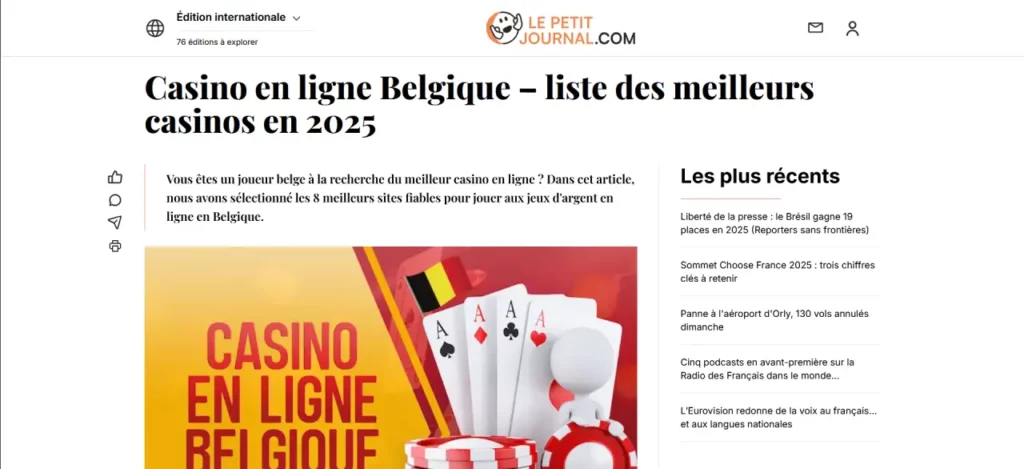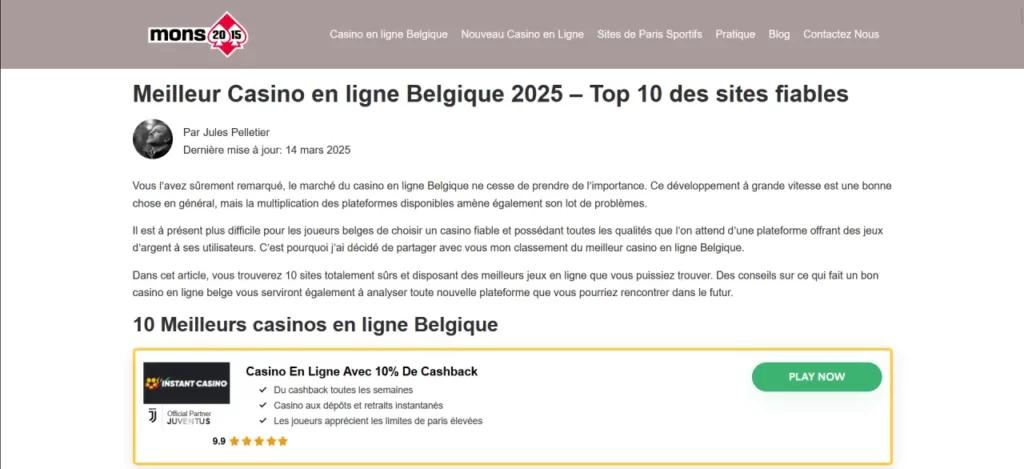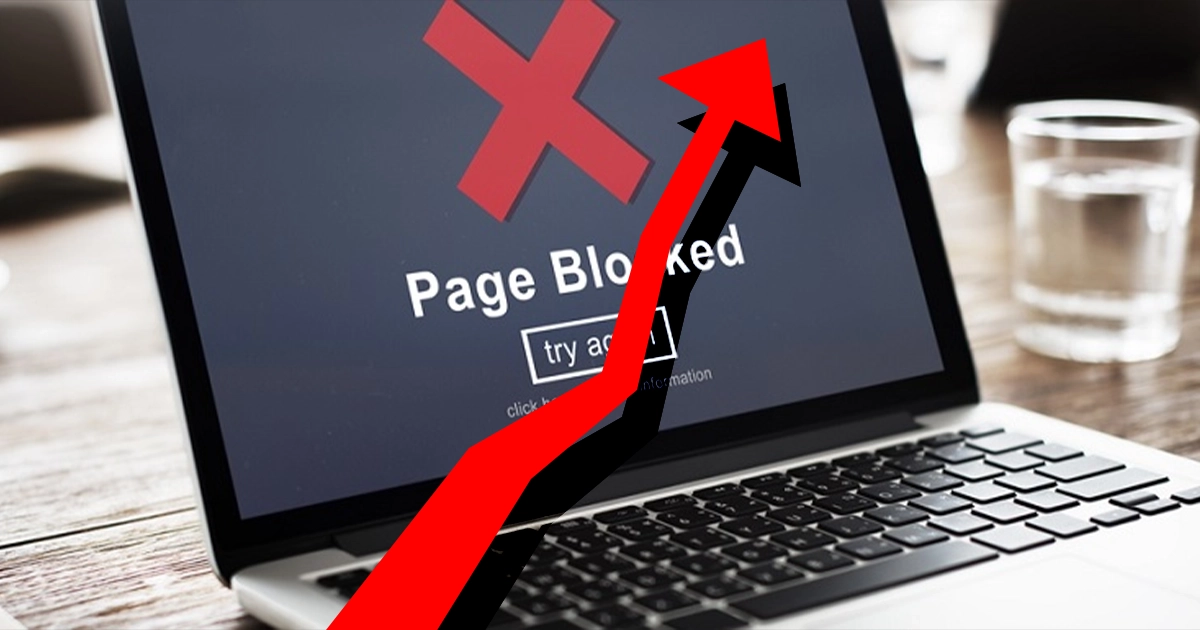Fake casino comparison sites: beware!
A proliferation of bogus sites ranking the best online casinos has begun to appear in Belgium. Behind a facade of seriousness, these pages claim to recommend safe and legal platforms. In reality, they are directing Internet users towards casinos operating illegally.
On several of these platforms, the promises are seductive: exclusive bonuses, selection of the ‘best casinos 2025’, guaranteed security. However, a careful analysis reveals that almost all the links redirect to illegal sites.
A tempting showcase… but a very real trap
Imagine: you’re looking for an online casino to spend an entertaining evening, perhaps even hoping for a small win. You type ‘best online casino Belgium 2025’ into Google. At the top of the results, you come across an article with a tempting title: ‘The 8 best casinos in Belgium this year’. Professional, well presented, with ratings, bonuses and reviews. Everything seems perfectly credible.

Unsuspecting, you click on one of the links. A beautiful interface opens up. You deposit your €100 welcome bonus, ready to try your luck. Except… you’ve just entered an illegal, unauthorised, unregulated casino.
What these platforms don’t tell you – deliberately – is that the casinos to which they redirect you have no Belgian licence, nor any reliable legal framework to protect your deposits or guarantee your winnings. In the event of a problem? No recourse whatsoever. No customer service, no mediators, no refunds.
Worse still: some of these platforms are empty shells, created solely to capture your banking or personal data. Behind their polished interfaces sometimes lie organised scam networks operating from abroad, outside any Belgian jurisdiction.
These rankings are not expert guides. They are disguised promotional tools, designed to direct traffic to obscure partners in return for payment. In other words: advertising disguised as neutral advice. A simulacrum of recommendation.
Dangerous manipulation, especially for young players
The visual presentation of these rankings is often professional, with comparison tables, ratings and even fake user reviews. To the uninformed Internet user, nothing looks suspicious.
Young adults, who have a strong online presence and are looking for a quick income, are particularly targeted by these platforms. The phenomenon is getting worse with the rise of influence on social networks, where certain ‘influencers’ openly promote illegal casinos.
Well-honed tactics to fool Google and players
The way these fake top lists work is devious: they sometimes include a few names of legal casinos in their lists but never offer a functional link to them. These names serve only to fool Google’s algorithms in order to appear more credible and to manipulate the search results.
The links that can actually be clicked, on the other hand, lead exclusively to platforms that are not authorised by the Gaming Commission (GC). In Belgium, only licensed operators are authorised to offer online gambling. Playing on an unlicensed site exposes you to risks: data theft, refusal of payment, or even legal proceedings.
Some sites also adopt an aggressive SEO positioning strategy, reusing the url of reliable sites and then slipping dubious top casinos into their content. This technique, known as ‘semantic cloaking’, abuses the trust of users and Google’s algorithm.
A blatant case in point is mons2015.eu, a site previously dedicated to the European Capital of Culture, which has been discreetly converted into a platform for promoting illegal casinos. As for iepslibramont.be, supposedly representing a provincial school, it has been hacked to promote links to dubious sites, under the guise of informative pages.

The GC powerless against the speed of the web
Unlike other countries, Belgium imposes very strict conditions for operating an online casino. Only licensed establishments with a physical presence in Belgium are allowed to offer online gambling.
However, many players are unaware of these rules, or mistakenly think that a European licence is sufficient. The GC, which regulates the Belgian gambling market, faces a mammoth task. While it regularly publishes the list of authorised operators, its ability to combat misleading third-party sites remains limited.
This lack of direct control allows unscrupulous actors to proliferate. Once identified, these sites can be reported, but they often reappear under a different name or domain.
What are the signs of a fake ranking?
There are several clues to identify a fake ranking page:
- No link to the official GC site.
- Excessive use of generic terms such as ‘best Belgian casino’, ‘no deposit bonus’, etc.
- Prominence given to platforms not listed on the GC website.
- Incomplete or non-existent legal notices.
- Overly enthusiastic or repetitive positive comments.
- Mention of bonuses or crypto-currencies, both of which are illegal in Belgian casinos.
It is recommended that you always consult the official list of licensed operators, available on the GC website.
How can you protect yourself as a player?
Faced with this growing threat, a few reflexes are essential:
- Always check the casino’s licence before registering.
- Visit the official GC website.
- Be wary of rankings that are too flattering or too generous.
- Never rely solely on a ranking site.
- If in doubt, seek expert advice or contact the GC.


